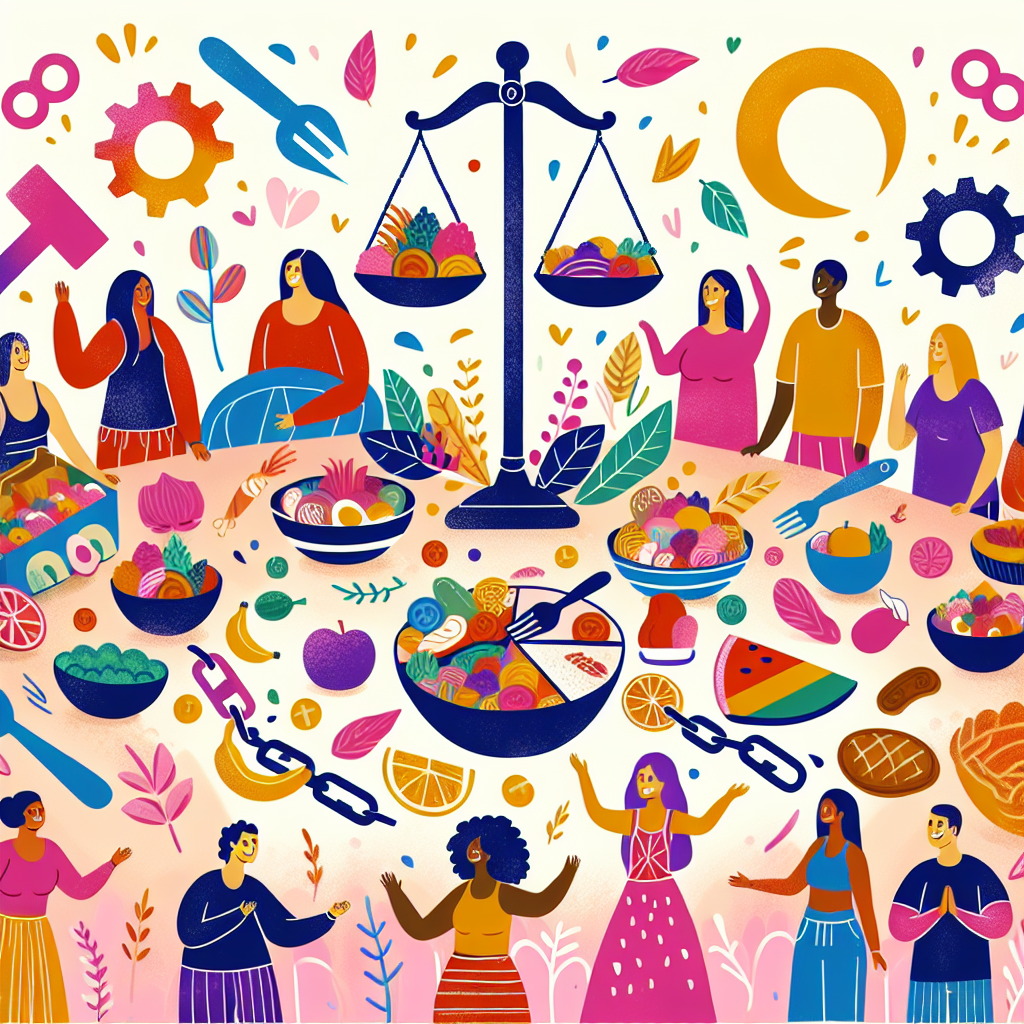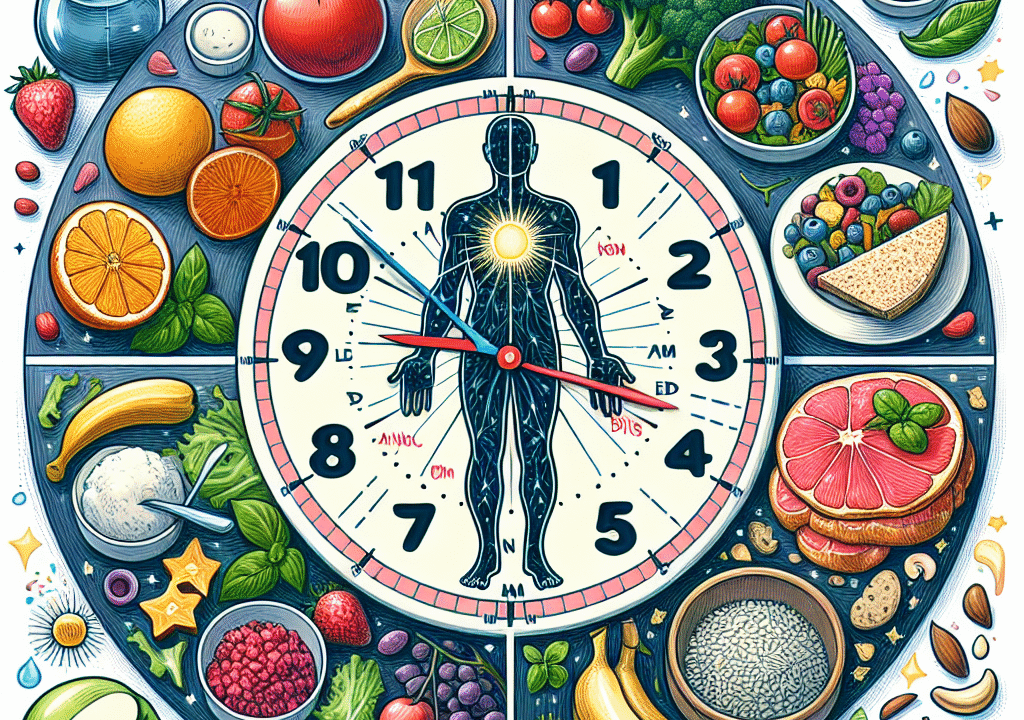
Intuitive Eating Recovery: Healing Your Relationship with Food After Diet Culture
In today’s world, we are constantly exposed to narrow definitions of health—social media fitness inspiration, weight-loss ads, and wellness influencers all promote strict rules that often do more harm than good. According to a 2021 survey by the National Eating Disorders Association, nearly 70 percent of adults have experienced disordered eating behaviors influenced by diet culture.
This widespread issue is rooted in what experts call diet culture toxicity—a belief system that glorifies thinness, demonizes certain foods, and ties self-worth to body size. Over time, diet culture can disconnect you from your body’s natural hunger and fullness cues, trigger unnecessary guilt around eating, and undermine your ability to trust your body.
Fortunately, there is a kinder, evidence-based alternative: intuitive eating. This approach promotes food freedom and a return to natural eating patterns grounded in self-trust, body respect, and compassion.
Let’s explore how intuitive eating can help you reclaim a peaceful relationship with food.
What Is Intuitive Eating?
Originally developed by registered dietitians Evelyn Tribole and Elyse Resch, intuitive eating is a non-diet nutrition framework that encourages reconnecting with your body’s natural hunger, fullness, and satisfaction cues. Rather than detaching from your inner signals to follow diet rules, this method encourages mindful and respectful food choices.
Recognized by major health organizations, intuitive eating is supported by research. A 2015 study published in Appetite found that individuals who practice intuitive eating typically have lower body mass index (BMI), more positive body image, and reduced emotional eating.
Intuitive eating is built on 10 foundational principles, including:
– Honoring your hunger
– Making peace with food
– Challenging the “food police” or internal food judgments
– Practicing gentle nutrition
– Respecting your body
In essence, intuitive eating helps you return to the natural ease with food you likely had as a child—when food was a source of nourishment, not stress.
Dr. Tracy Tylka, a psychologist and body image researcher, explains, “Intuitive eating helps people let go of fear and take back control of their health in ways that don’t feel restrictive.”
The Impact of Diet Culture on Your Food Relationship
To heal, it’s important to understand the damage created by diet culture. This system assigns moral value to food (“good” versus “bad”) and equates thinness with health and desirability. From social media feeds to doctors’ offices, these harmful messages are everywhere.
Consequences of diet culture include:
– Lifelong cycles of dieting and weight fluctuations
– Disordered eating and orthorexia
– Food-related guilt and anxiety
– Poor body image and low self-esteem
According to a 2020 review in The Lancet, 85 percent of adolescents report frequent exposure to weight-centric messaging, with direct links to disordered eating behaviors and body dissatisfaction.
Breaking free from these distorted beliefs is the essential first step toward building a healthy relationship with food—one based on trust, attention to your body’s signals, and respect for individual needs.
How Intuitive Eating Supports Recovery
Now that we’ve explored the roots of diet-related harm, let’s dive into how intuitive eating can guide your journey toward balance, nourishment, and peace.
Making Peace with All Foods
One of the most powerful tenets of intuitive eating is granting yourself full, unconditional permission to eat. This doesn’t mean eating an endless amount of cookies—it means letting go of black-and-white thinking around food.
For example, if chocolate has always been labeled as “bad,” making peace with it allows you to enjoy it without guilt. Research shows that restricting foods leads to increased cravings and the likelihood of overeating (Polivy & Herman, 2002). When food is allowed, it loses its forbidden allure.
This shift enables you to make food choices based on how your body feels—not external rules or fear.
Recognizing Hunger and Fullness Cues
Years of dieting can dull your ability to notice when you’re hungry or full. Intuitive eating rebuilds this connection through hunger and fullness awareness—a set of skills many of us lose over time.
Try using a hunger/fullness journal to track how your body communicates its needs. For instance, if you eat lunch simply because it’s noon, pause and check whether your body is actually asking for food or something else like rest or hydration.
The goal is to reconnect with your body’s signals and trust them.
Transforming Body Image
Respecting your body is foundational to intuitive eating. Body respect doesn’t require loving your appearance every day—it means acknowledging your body deserves care and dignity, no matter its shape or size.
Dr. Lindo Bacon, author of Health at Every Size, says, “The more we can accept our natural body diversity, the less likely we are to harm ourselves in pursuit of someone else’s ideal.”
Instead of focusing on perceived flaws, shift to body gratitude. For instance, thank your legs for carrying you through your day or your arms for embracing loved ones.
Understanding and Navigating Emotional Eating
Emotional eating is a natural response to stress, sadness, boredom, or other emotions. While not inherently wrong, intuitive eating helps you differentiate emotional hunger from physical hunger—and gives you tools to support emotional needs in healthy ways.
Alternative coping strategies include:
– Journaling your thoughts
– Practicing slow breathing or short meditation
– Speaking with a friend or therapist
– Taking a walk outside or listening to calming music
Tending to your emotions directly softens the need to use food as a coping mechanism.
Sustainable Self-Care Beyond Dieting
Unlike restrictive programs, intuitive eating promotes holistic well-being. The goal is to prioritize balanced self-care over body control.
This includes:
– Enjoyable movement (not punishment-based exercise)
– Consistent rest and sleep
– Emotional and mental wellness
– Flexible eating rhythms
For example, instead of forcing yourself into intense early-morning boot camps, choose activities you look forward to—like dance, walking, or swimming. Wellness shouldn’t feel like punishment; it should feel life-giving.
To support mental health alongside intuitive eating, explore additional wellness tools like mindfulness and rest from trusted health resources.
Tips for Beginning Your Intuitive Eating Journey
If you’re ready to step away from diet culture and toward intuitive nourishment, here are some practical steps to start:
– Disengage from diet talk. Unfollow social media influencers or programs that encourage body shame or restrictive food rules.
– Practice curiosity. Each meal is an opportunity to learn—not a test of willpower.
– Use body clues to guide eating. Sensations like irritability or low energy can be signs of hunger.
– Seek professional support. Consider working with an intuitive eating registered dietitian or therapist to receive personalized guidance.
Food Freedom Is Possible
You were born with the ability to nourish yourself. Healing is about letting go of the harmful ideas that disconnected you from that ability—and embracing your body’s inner wisdom again.
Intuitive eating isn’t about perfection; it’s about progress. It’s about building trust, nourishing your body without fear, and honoring yourself with compassion.
Remember: your self-worth is not defined by your clothing size or scale weight. You have the right to enjoy food, move with joy, and feel at peace in your body.
Begin your journey with compassion and curiosity. You deserve a life free from the grip of diet culture.
Helpful Resources and References
– Tribole, E., & Resch, E. (2020). Intuitive Eating: A Revolutionary Anti-Diet Approach (4th ed.)
– Polivy, J., & Herman, C. P. (2002). If at First You Don’t Succeed: False Hopes of Self-Change. American Psychologist, 57(9), 677–689.
– Bacon, L. (2010). Health at Every Size: The Surprising Truth About Your Weight.
– The Lancet (2020). Adolescent Exposure to Diet Messaging and Psychological Impacts.
– National Eating Disorders Association (2021). Diet Culture and Disordered Eating Statistics.
– Tylka, T. L., & Kroon Van Diest, A. M. (2013). The Intuitive Eating Scale–2. Journal of Counseling Psychology.


